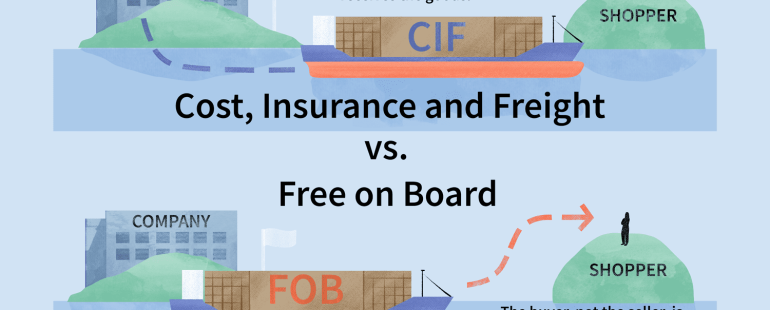
Understanding FOB in Shipping Terms and Transportaion
Introduction
In the world of shipping and logistics, understanding the terms of trade is crucial for businesses involved in international commerce. One of the most commonly encountered terms is “FOB,” which stands for “Free On Board.” This term is vital in defining the responsibilities and liabilities of buyers and sellers in the shipping process. This article explores the meaning, implications, and variations of FOB in shipping terms.
What Does FOB Mean?
FOB serves as a trade term that indicates when the responsibility of goods shifts from the seller to the buyer during the shipping process. The key points of this term revolve around shipments, freight charges, and liability.
- Location Designation: FOB terms usually specify a location—generally a port or a city—where the risk and title of goods transfer from seller to buyer.
- Shipping Responsibilities: The term outlines who is responsible for freight charges and insurance during transit.
- Legal Implications: FOB is governed by the Uniform Commercial Code (UCC) in the United States, which helps businesses understand their obligations in transactions.
Types of FOB
Understanding the different variations of FOB is important for businesses engaged in international shipping. The two main types are:
- FOB Origin (also known as FOB Shipping Point):
- Definition: Under FOB origin, the seller is responsible for the goods until they reach the shipping point. Once the goods are loaded onto the shipping vehicle (e.g., truck or ship), all responsibilities and risks transfer to the buyer.
- Implications: The buyer is responsible for freight charges, insurance, and other costs incurred during the shipping process. They also bear the risk of loss or damage during transit.
- FOB Destination:
- Definition: In this scenario, the seller retains responsibility for the goods until they arrive at the buyer’s designated location. This means the seller pays for shipping and is liable for the goods until delivery is completed.
- Implications: The buyer assumes the risks only when the goods are delivered. This can benefit buyers who are concerned about shipping reliability and logistics.
Practical Applications of FOB
Understanding FOB terms is essential for businesses to ensure clarity in contracts and negotiations. Here are practical applications:
- Contracts: Most sales agreements specify FOB terms to avoid misunderstandings regarding responsibility and costs. Businesses need to negotiate and clearly document the terms in their contracts to prevent disputes.
- Insurance Considerations: Depending on whether the terms are FOB origin or FOB destination, the parties involved will need to approach insurance differently. The seller may need insurance for goods in transit under FOB origin, whereas the buyer would need coverage under FOB destination.
- Cost Estimation: Depending on whether FOB is defined as origin or destination, businesses must include shipping costs in their pricing strategies accurately. This will affect cost calculations for both the seller and buyer.
Conclusion
FOB is a critical term in shipping and logistics that defines the responsibilities and liabilities of the parties involved in a transaction. Understanding whether FOB is designated as origin or destination can significantly impact the obligations of sellers and buyers, costs incurred, and risk management strategies.
As international trade continues to evolve, awareness of terms like FOB ensures that businesses can navigate shipping processes effectively, fostering smoother transactions and stronger partnerships in global markets.

Comments (No Responses )
No comments yet.